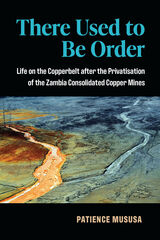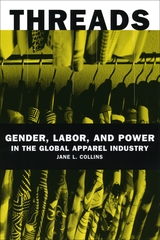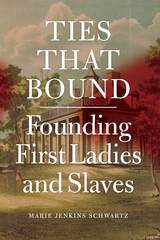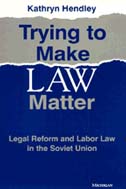104 books about Employees and 4
start with T
104 books about Employees and 4
104 books about Employees
4 start with T start with T
4 start with T start with T

There Used to Be Order
Life on the Copperbelt after the Privatisation of the Zambia Consolidated Copper Mines
Patience Mususa
University of Michigan Press, 2021
In There Used to Be Order, Patience Mususa considers social change in the Copperbelt region of Zambia following the re-privatization of the large state mining conglomerate, the Zambia Consolidated Copper Mines (ZCCM), in the mid-1990s. As the copper mines were Zambia’s most important economic asset, the sale of ZCCM was considered a major loss to the country. More crucially, privatization marked the end of a way of life for mine employees and mining communities. Based on three years of ethnographic field research, this book examines life for those living in difficult economic circumstances, and considers the tension between the life they live and the nature of an “extractive area.” This account, unusual in its examination of middle-income decline in Africa, directs us to think of the Copperbelt not only as an extractive locale for copper whose activities are affected by the market, but also as a place where the residents’ engagement with the harsh reality of losing jobs and struggling to earn a living after the withdrawal of welfare is simultaneously changing both the material and social character of the place. Drawing on phenomenological approaches, the book develops a theoretical model of “trying,” which accounts for both Copperbelt residents’ aspirations and efforts.
[more]

Threads
Gender, Labor, and Power in the Global Apparel Industry
Jane L. Collins
University of Chicago Press, 2003
Americans have been shocked by media reports of the dismal working conditions in factories that make clothing for U.S. companies. But while well intentioned, many of these reports about child labor and sweatshop practices rely on stereotypes of how Third World factories operate, ignoring the complex economic dynamics driving the global apparel industry.
To dispel these misunderstandings, Jane L. Collins visited two very different apparel firms and their factories in the United States and Mexico. Moving from corporate headquarters to factory floors, her study traces the diverse ties that link First and Third World workers and managers, producers and consumers. Collins examines how the transnational economics of the apparel industry allow firms to relocate or subcontract their work anywhere in the world, making it much harder for garment workers in the United States or any other country to demand fair pay and humane working conditions.
Putting a human face on globalization, Threads shows not only how international trade affects local communities but also how workers can organize in this new environment to more effectively demand better treatment from their distant corporate employers.
To dispel these misunderstandings, Jane L. Collins visited two very different apparel firms and their factories in the United States and Mexico. Moving from corporate headquarters to factory floors, her study traces the diverse ties that link First and Third World workers and managers, producers and consumers. Collins examines how the transnational economics of the apparel industry allow firms to relocate or subcontract their work anywhere in the world, making it much harder for garment workers in the United States or any other country to demand fair pay and humane working conditions.
Putting a human face on globalization, Threads shows not only how international trade affects local communities but also how workers can organize in this new environment to more effectively demand better treatment from their distant corporate employers.
[more]

Ties That Bound
Founding First Ladies and Slaves
Marie Jenkins Schwartz
University of Chicago Press, 2017
Behind every great man stands a great woman. And behind that great woman stands a slave. Or so it was in the households of the Founding Fathers from Virginia, where slaves worked and suffered throughout the domestic environments of the era, from Mount Vernon, Monticello, and Montpelier to the nation’s capital. American icons like Martha Washington, Martha Jefferson, and Dolley Madison were all slaveholders. And as Marie Jenkins Schwartz uncovers in Ties That Bound, these women, as the day-to-day managers of their households, dealt with the realities of a slaveholding culture directly and continually, even in the most intimate of spaces.
Unlike other histories that treat the stories of the First Ladies’ slaves as separate from the lives of their mistresses, Ties That Bound closely examines the relationships that developed between the First Ladies and their slaves. For elite women and their families, slaves were more than an agricultural workforce; slavery was an entire domestic way of life that reflected and reinforced their status. In many cases slaves were more constant companions to the white women of the household than were their husbands and sons, who often traveled or were at war. By looking closely at the complicated intimacy these women shared, Schwartz is able to reveal how they negotiated their roles, illuminating much about the lives of slaves themselves, as well as class, race, and gender in early America.
By detailing the prevalence and prominence of slaves in the daily lives of women who helped shape the country, Schwartz makes it clear that it is impossible to honestly tell the stories of these women while ignoring their slaves. She asks us to consider anew the embedded power of slavery in the very earliest conception of American politics, society, and everyday domestic routines.
Unlike other histories that treat the stories of the First Ladies’ slaves as separate from the lives of their mistresses, Ties That Bound closely examines the relationships that developed between the First Ladies and their slaves. For elite women and their families, slaves were more than an agricultural workforce; slavery was an entire domestic way of life that reflected and reinforced their status. In many cases slaves were more constant companions to the white women of the household than were their husbands and sons, who often traveled or were at war. By looking closely at the complicated intimacy these women shared, Schwartz is able to reveal how they negotiated their roles, illuminating much about the lives of slaves themselves, as well as class, race, and gender in early America.
By detailing the prevalence and prominence of slaves in the daily lives of women who helped shape the country, Schwartz makes it clear that it is impossible to honestly tell the stories of these women while ignoring their slaves. She asks us to consider anew the embedded power of slavery in the very earliest conception of American politics, society, and everyday domestic routines.
[more]

Trying to Make Law Matter
Legal Reform and Labor Law in the Soviet Union
Kathryn Hendley
University of Michigan Press, 1996
One of the most pressing issues of our time is the possibility of rebuilding the rule of law in former Leninist countries as a part of the transition to a market democracy. Despite formal changes in legislation and an increased attention to law in the rhetoric of policymakers, instituionalization of the rule of law has proven to be an immensely difficult challenge. Leninist regimes destroyed popular faith in law and legal institutions and, like other transitional regimes, contemporary post-communist Russia lacks the necessary institutional infrastructure to facilitate the growth of the rule of law.
Trying to Make Law Matter provides unique insight into the possibility of creating the rule of law. It is based on Kathryn Hendley's pathbreaking field research into the actual practices of Russian trial courts, lawyers, factory managers, and labor unions, contrasting the idealistic legal pronouncements of workers' rights during the Gorbachev era with tawdry reality of inadequate courts and dispirited workers.
Hendley frames her study of Russian law in action with a lively theoretical analysis of the fundamental prerequisites of the rule of law not only as a set of ideals but as a legal system that rests on the participation of rights-bearing citizens. This work will appeal to law, political science, and sociology scholars as well as area specialists and those who study transitions to market democracy.
Kathryn Hendley is Professor, Law and Political Science, University of Wisconsin, Madison.
Trying to Make Law Matter provides unique insight into the possibility of creating the rule of law. It is based on Kathryn Hendley's pathbreaking field research into the actual practices of Russian trial courts, lawyers, factory managers, and labor unions, contrasting the idealistic legal pronouncements of workers' rights during the Gorbachev era with tawdry reality of inadequate courts and dispirited workers.
Hendley frames her study of Russian law in action with a lively theoretical analysis of the fundamental prerequisites of the rule of law not only as a set of ideals but as a legal system that rests on the participation of rights-bearing citizens. This work will appeal to law, political science, and sociology scholars as well as area specialists and those who study transitions to market democracy.
Kathryn Hendley is Professor, Law and Political Science, University of Wisconsin, Madison.
[more]
READERS
Browse our collection.
PUBLISHERS
See BiblioVault's publisher services.
STUDENT SERVICES
Files for college accessibility offices.
UChicago Accessibility Resources
home | accessibility | search | about | contact us
BiblioVault ® 2001 - 2024
The University of Chicago Press









